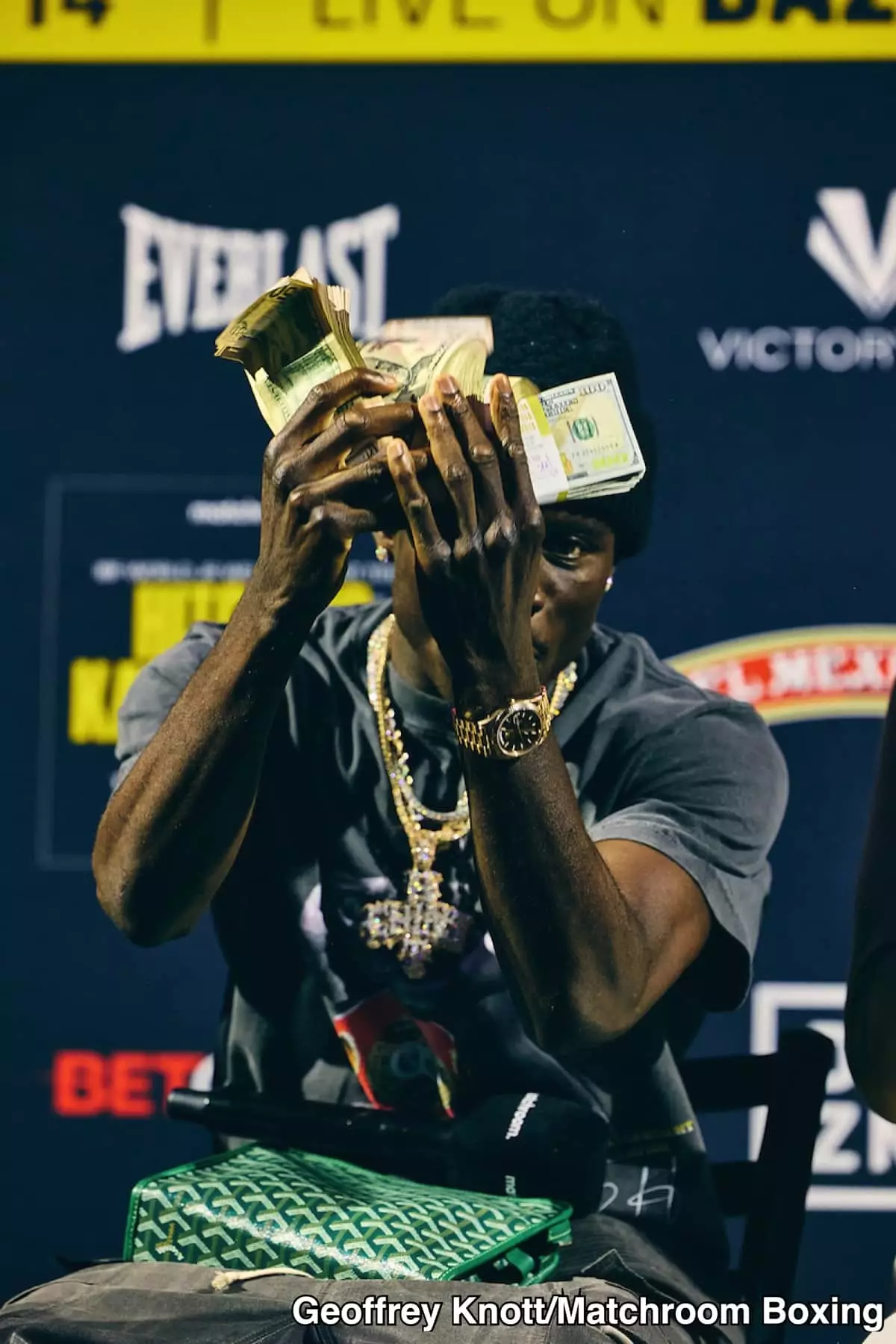In the high-stakes realm of boxing, the narratives woven around fighters can shape their careers just as much as their skills inside the ring. The reigning IBF 140-pound champion, Richardson Hitchins, finds himself in such an intriguing narrative as he gears up to defend his title against George Kambosos Jr. The term “runner” has echoed in the boxing community, fired off by various critics, including Kambosos and prominent boxing personality Turki Alalshikh. As the fight approaches, Hitchins is adamant about disavowing this characterization, raising questions about the impact of labels in sports.
Hitchins views being called a “runner” as an affront, leveraging the term to spark a sense of defiance that will fuel his performance in the ring. This refusal to accept an identity perceived as weak or evasive is not merely about personal pride; it defines how he wants to approach the fight. Hitchins has declared unequivocally that he will stand toe-to-toe with Kambosos, a fighter known for his grit and resilience. Hitchins promises to deliver “punishment” all night—an assertion that could transform the bout into an electrifying showcase of skill and determination.
The Stakes of Aggression
There’s a palpable intensity building around this matchup, and it stems from Hitchins’ willingness to embrace aggression. Historically, boxers often shape their strategies based on their opponents; however, Hitchins has turned the script on its head. By assuring fans and pundits alike that he won’t shy away from a brawl, he opens the door for a fight that could align with what audiences crave—action-packed exchanges rather than strategic retreats.
Boxing fans eagerly anticipate a clash of fighting styles, and while Hitchins has the superior technical skills on paper, Kambosos brings a physical toughness that has served him well. The former lightweight champion has proven himself in deep waters, thriving when the stakes are highest. If Hitchins indeed commits to staying in the pocket and exchanging blows, it puts the onus on Kambosos to adapt; the outcome could very well depend on who can impose their will more effectively.
Strategic Confrontation and Mind Games
The psychological aspect of this fight cannot be underestimated. Hitchins’ announcement of his game plan is as much a tactical move as it is a mental one. By rejecting the notion of running, he aims to upset Kambosos’ expectations, forcing him to prepare for an opponent willing to take risks and engage directly. This mind game could be the deciding factor that alters the fight’s dynamic, offering Hitchins an upper hand.
Kambosos, on the other hand, will undoubtedly aim to exploit any openings that Hitchins might leave when pushing forward. For a fighter known for his conditioning and readiness for slugfests, the challenge will be to draw out a fight that plays to his strengths while remaining cautious of Hitchins’ potent strikes. The spectacle promises to be thrilling for fans, raising the stakes for both fighters involved.
Unfolding against the backdrop of boxing’s thirst for excitement, the Hitchins versus Kambosos bout promises to be more than just another title defense or a title challenge. Instead, it’s an emblem of what it means to define oneself in the sport, with both fighters on paths that could lead to redefining their legacies.

